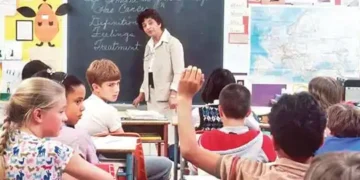Blitz Bureau
In the aftermath of recent far-right riots across UK cities, driven by fake news on social media, schoolchildren in the UK are set to be trained in identifying extremist content and fake news online.
UK Education Secretary Bridget Phillipson announced a review of the primary and secondary school curriculum to incorporate critical thinking skills across various subjects. This initiative aims to equip young people with the tools necessary to challenge fake news and conspiracy theories.
Embedding critical thinking
Bridget Phillipson emphasised the importance of arming children with the knowledge and skills to critically assess online content. “It’s more important than ever that we give young people the knowledge and skills to be able to challenge what they see online,” Phillipson said.
The curriculum review will focus on integrating these critical skills into lessons, helping students distinguish between reliable reporting and fabricated clickbait. Phillipson assured that while the curriculum would continue to prioritise high standards in core subjects, it would also offer a broader, knowledge-rich education. “Our renewed curriculum will always put high and rising standards in core subjects first – that’s non-negotiable.
But alongside this, we will create a broad, knowledge-rich curriculum that widens access to cultural subjects and gives pupils the knowledge and skills they need to thrive at work and throughout life,” she added.
The need for this educational reform became evident following the recent riots, which began in Southport after the fatal stabbings of three young girls.
False claims about the UK-born teenage male suspect being a Muslim refugee sparked the unrest, which spread rapidly across other cities.
The violent clashes, condemned by Prime Minister Keir Starmer as “far-right thuggery,” prompted swift policing action and fast-track court hearings.
Chief Constable Gavin Stephens, Chair of the National Police Chiefs’ Council, expressed concern over the spread of disinformation during the unrest.
Vulnerable to disinformation
He noted the significant impact of online misinformation, stating, “What has struck me during the disorder is how vulnerable we all are to disinformation and vile hatred online.” He urged for more caution in sharing online content, highlighting the real-world consequences of online behaviour.
















